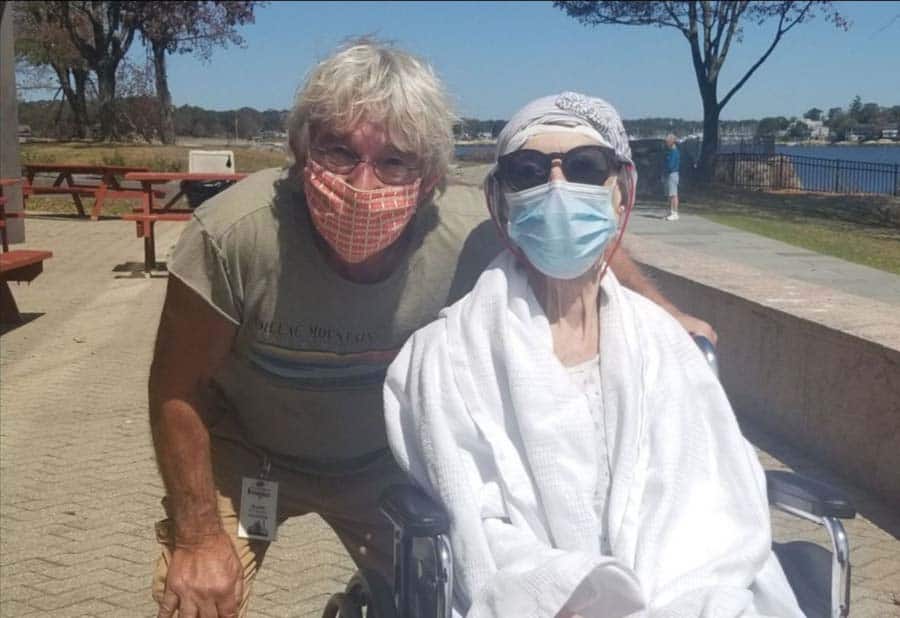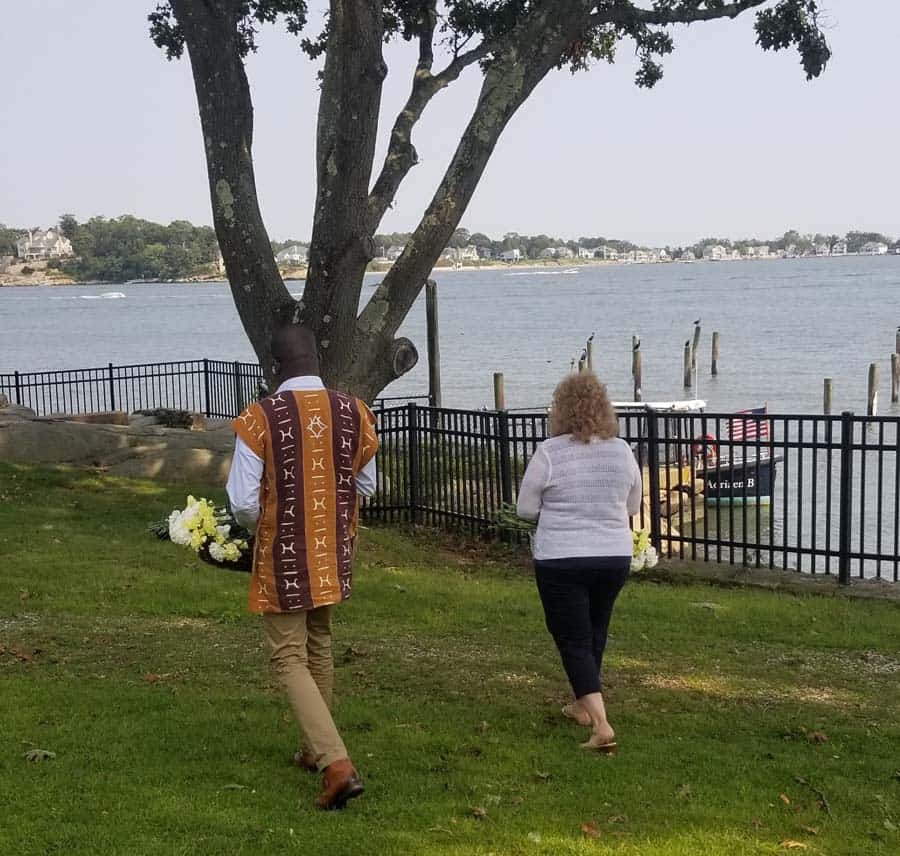Please view our updated COVID-19 guidelines and visiting procedures →.

Many people know that hospice care benefits are mandated by Medicare such as skilled nursing, aides, durable medical equipment, drugs, and ambulance transportation, among other things. What fewer realize is that those benefits extend to the survivors, in the form of bereavement support for 13 months following the death of the patient. It is rare for a program to include services to others, and many who do not take advantage of a bereavement program may not even know that it exists.
At the Connecticut Hospice, bereavement care is a part of the Social Work department. That group handles intake assessments, including bereavement risk, at the time of enrollment. Clinical skills and long experience enable social workers to evaluate the patient’s family, in order to try to determine whether there are those who might be at risk of not coping with the death of the patient. There are attempts made at that point to try and provide support and counseling, which includes bringing in the Spiritual Care group to assist wherever possible.
The IDT (interdisciplinary team), which meets every other week and evaluates the care needed by each patient and family, is enlisted in a general discussion of psychological as well as physical needs. Everyone who deals with the patient and family is encouraged to note problems or issues, and to enlist the aid of others on the team in helping to address them.
As a patient nears the end of life, Social Work offers help in planning for arrangements after death, and with the expected anticipatory grief. After a patient passes on, the caregivers involved with that family usually reach out and express condolences. At that point, the Bereavement team generally takes over. This process can take some time, and it is not uncommon for people not even to remember being called, or offered bereavement services. That’s why they are contacted at other, later, times, when help may be more readily accepted, both by phone and by letter or card. Many people describe those early days as being in a state of numbness, often accompanied by overwhelming exhaustion from weeks or even years of caretaking. Bereavement at that immediate time is separate from the processing that takes place over the months ahead.
Some surviving family members request individual help, with specific chores, or with more general emotional issues. If it is appropriate, some will also be referred to outside therapists or psychiatrists, for more intensive treatment. Others take advantage of grief groups, which can be specifically for particular people, such as spouses, parents, or children. Some groups are run for one gender only, to increase the commonality of concerns and feelings. At Connecticut Hospice, we open our groups to members of the broader community, including those who were not enrolled in services provided by us.

Most groups last for a few months, although it is common for at least some members of the group to remain in contact with each other in an informal way going forward. Sometimes, the seasons dictate the agenda, as when people face holidays, and the need to take over certain functions or to create new traditions. One participant stated that her friends and family were supportive, but that it was invaluable to be in conversation with others who had gone through the death of a parent, just as she had.
Many family members choose to stay involved with Connecticut Hospice, and some of our best volunteers come from the ranks of our bereavement groups. Our policy is to have people wait a year before becoming a volunteer, since raw grief is not always helped by constant contact with other grieving families. However, once that time has passed, it can be very soothing, and provide great closure, to be able to pay it forward to others.

Everyone at Connecticut Hospice deals with grief on a daily basis. They understand the forms that displaced grief can take, and they are almost unfailingly patient and kind, even in the face of unbridled criticism. It’s a delicate balance to be warm enough to help a person cope by providing sympathy and compassion, but to be emotionally tough enough to take the lashing outs that can accompany the grieving of others. In fact, our social workers do some of their work with the clinical staff, addressing those situations and helping us to process them appropriately.
Once a year, we have a Service of Remembrance for everyone who has died in our care in the prior year. It used to take place with hundreds of relatives and staff in a giant tent. Since COVID, it is online, with both taped and live-streamed portions, and is accessible throughout the year to families and friends. It is impossible not to tear up as the names and faces of each of the patients scroll across the screen.

At the end of the service, music wafts through the air, as flowers representing those who have passed are carried in baskets down to a boat on the shore (In fact, the service time is changed each year, in deference to the tides). The boat slowly makes its way out to sea, and the flowers are dropped into the water, where they float as a lovely tribute.

Grief follows its own timetable, however, and everyone recovers in his or her individual way. Connecticut Hospice continues to serve as a resource, with written materials, online articles, and opportunities for the families we have served to engage with us in our mission. We consider it a privilege to aid loved ones through the end-of-life journeys of our patients. We don’t forget them. We learn from them, celebrate their accomplishments, retell their jokes, recount our memories of them, and think of them when we gaze out on beautiful sunrises and sunsets over the water, which evoke so well the circle of life we all share.

As a not-for-profit, we depend on generous donors to help us provide customized services and therapies that aren’t completely covered by Medicaid, Medicare, or private insurance.
Please make a gift to help us sustain the highest standard of care.
Admissions may be scheduled seven days a week.
Call our Centralized Intake Department: (203) 315-7540.